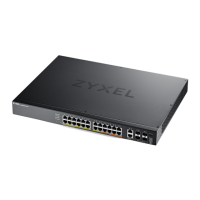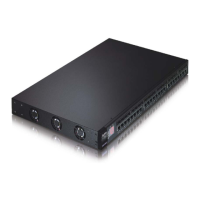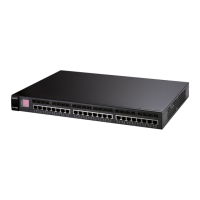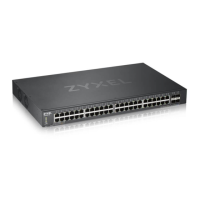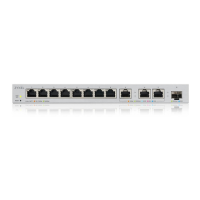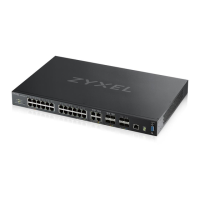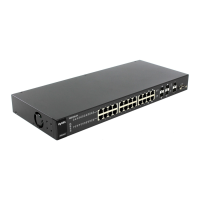Chapter 13 Spanning Tree Protocol
XGS2210 Series User’s Guide
148
13.5 Rapid Spanning Tree Protocol Status
Click Advanced Application > Spanning Tree Protocol in the navigation panel to display the status
screen as shown next. See Section 13.1 on page 140 for more information on RSTP.
Note: This screen is only available after you activate RSTP on the Switch.
Figure 116 Advanced Application > Spanning Tree Protocol > Status: RSTP (Standalone mode)
Figure 117 Advanced Application > Spanning Tree Protocol > Status: RSTP (Stacking mode)
The following table describes the labels in this screen.
Table 60 Advanced Application > Spanning Tree Protocol > Status: RSTP
LABEL DESCRIPTION
Configuration Click Configuration to specify which STP mode you want to activate. Click RSTP to edit RSTP
settings on the Switch.
Bridge Root refers to the base of the spanning tree (the root bridge). Our Bridge is this switch. This
Switch may also be the root bridge.
Bridge ID This is the unique identifier for this bridge, consisting of bridge priority plus MAC address. This ID
is the same for Root and Our Bridge if the Switch is the root switch.
Hello Time
(second)
This is the time interval (in seconds) at which the root switch transmits a configuration
message. The root bridge determines Hello Time, Max Age and Forwarding Delay.
Max Age (second) This is the maximum time (in seconds) the Switch can wait without receiving a configuration
message before attempting to reconfigure.
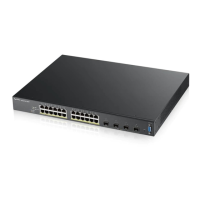
